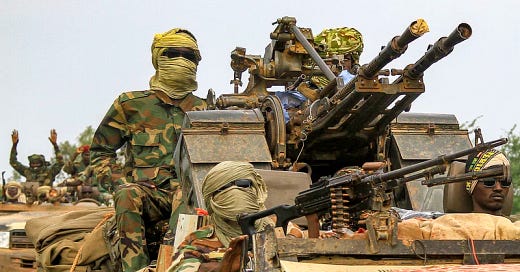The geopolitics of the war in Sudan
How external actors are prolonging the war and complicating potential avenues to a peaceful settlement
Thank you for being a regular reader of An Africanist Perspective. If you haven’t done so yet, please hit subscribe in order to receive timely updates.
I: How is the African Union letting this happen?
There is a reason Sudan’s peace talks are (likely?) going to happen in Geneva (and Jeddah before that) and not in an African capital. So before discussing the geopolitics of the conflict in Sudan, it’s worth highlighting the failures of the African Union and other regional organizations. Whether individually or collectively, African states have proven time and again that they cannot perform the most basic function: protecting African lives in the region and abroad. The figures from Sudan are astonishing. More than 10 million are internally displaced. 25 million are facing acute hunger. Famine has been declared in parts of the country. By all measures this war has been a humanitarian catastrophe.
The death toll commonly cited in the media — just over 15,000 — is definitely an undercount.



